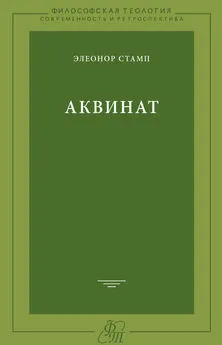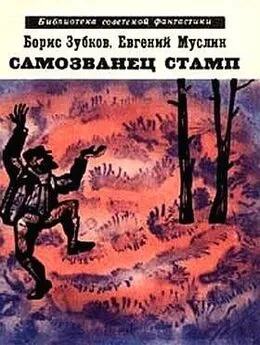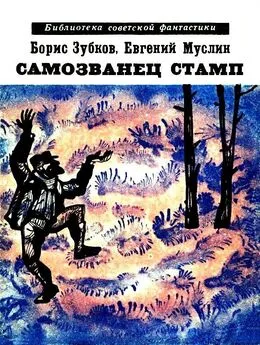Элеонор Стамп - Аквинат
- Название:Аквинат
- Автор:
- Жанр:
- Издательство:Литагент «Знак»5c23fe66-8135-102c-b982-edc40df1930e
- Год:2013
- Город:Москва
- ISBN:978-5-9551-0662-5
- Рейтинг:
- Избранное:Добавить в избранное
-
Отзывы:
-
Ваша оценка:
Элеонор Стамп - Аквинат краткое содержание
Элеонор Стамп – американская исследовательница философии и теологии Фомы Аквинского, автор многочисленных статей и книг, посвященных проблемам философской медиевистики и философской теологии. Монография «Аквинат», опубликованная в 2003 г., признана одной из лучших работ о философии св. Фомы, вышедших в свет в последнее десятилетие. На русский язык переводится впервые.
Аквинат - читать онлайн бесплатно ознакомительный отрывок
Интервал:
Закладка:
– (1991) “On the Simplicity of the Soul”, in James Tomberlin (ed.), Philosophical Perspectives, vol. 5 (Atascadero, CA: Ridgeview Publishing Co.).
Churchland, Patricia (1990) Neurophilosophy. Toward a Unified Science of the Mind/Brain (Cambridge, MA: MIT Press).
Cohen, Sheldon M. (1982) “St. Thomas Aquinas on the Immaterial Reception of Sensible Forms”, The Philosophical Review 91: 193–209.
Copleston, Frederick Charles (1955) Aquinas (Baltimore, MD: Penguin Press).
Craig, William Lane (1979) “God, Time and Eternity”, Religious Studies 29: 165–170.
– (1985) “Was Thomas Aquinas a B-Theorist of Time?” New Scholasticism 59: 473–483.
– (1990) “God and Real Time”, Religious Studies 26: 335–347.
– (1991) “Time and Infinity”, International Philosophical Quarterly 31: 387–401.
– (1996) “Timelessness and Creation”, Australasian Journal of Philosophy 74: 646–656.
– (1997) “Divine Timelessness and Necessary Existence”, International Philosophical Quarterly 37: 217–224.
– (1998a) “The Tensed vs. Tenseless Theory of Time: A Watershed for the Conception of Divine Eternity”, in R. LePoidevin (ed.), Questions of Time and Tense (Oxford: Oxford University Press), pp. 221–250.
– (1998b) “Divine Timelessness and Personhood”, International Journal for Philosophy of Religion 43: 109–124.
– (2000a) “Timelessness and Omnitemporality”, Philosophia Christi 2: 29–33.
– (2000b) “Omniscience, Tensed Facts, and Divine Eternity”, Faith and Philosophy 17: 225–241.
– (2001a) Time and Eternity: Exploring God’s Relationship to Time (Wheaton, IL: Crossway).
– (2001b) God, Time and Eternity (Dordrecht: Kluwer Academic Publishers).
Crotty, Nicholas (1962) “The Redemptive Role of Christ’s Resurrection”, The Thomist 25: 54–106.
Cross, Richard (1996) “Aquinas on Nature, Hypostasis, and the Metaphysics of the Incarnation”, The Thomist 60: 171–202.
– (2002) The Metaphysics of the Incarnation: Thomas Aquinas to Duns Scotus (Oxford: Oxford University Press).
Daly, Mary (1971) “The Notion of Justification in the Commentary of St. Thomas Aquinas on the Epistle to the Romans”, PhD dissertation, Marquette University, Milwaukee.
Davies, Brian (1992) The Thought of Thomas Aquinas (Oxford: Clarendon Press).
Deferrari, Roy J. and Barry, M. Inviolata (1948) A Complete Index of the Summa Theologica of St. Thomas Aquinas (Washington, DC: Catholic University of America Press).
De la Trinité, Philippe (1961) What is Redemption? trans. Anthony Armstrong (New York: Hawthorn Books).
Dennett, Daniel (1991) Consciousness Explained (Boston: Little, Brown and Co.).
Descartes, René (1984) The Philosophical Writings of Descartes, vol. II. trans. John Cottingham, Robert Stoothoff, and Dugald Murdoch (Cambridge: Cambridge University Press).
De Tocco, Guillaume (1323) Ystoria sancti Thome de Aquino de Guillaume de Tocco, edited, with introduction and notes, by Claire Le Brun-Gouanvic (Toronto: Pontifical Insitute of Medieval Studies, 1996).
Dienstag, Jacob I. (ed.) (1975) Studies in Maimonides and St. Thomas Aquinas (New York: KTAV Publishing House, Inc.).
Dittoe, John T. (1946) “Sacramental Incorporation into the Mystical Body”, The Thomist 9: 469–514.
Dobbs-Weinstein, Idit (1995) Maimonides and St. Thomas on the Limits of Reason (Albany, NY: State University of New York Press).
Doig, James (1972) Aquinas on Metaphysics: A Historico-Doctrinal Study of the Commentary on the Metaphysics (The Hague: Martinus Nijhoff).
Donagan, Alan (1977) The Theory of Morality (Chicago: University of Chicago Press).
– (1982) “Thomas Aquinas on Human Action”, in N. Kretzmann, A. Kenny and J. Pinborg (eds), The Cambridge History of Later Medieval Philosophy (Cambridge: Cambridge University Press), pp. 642–654.
– (1985) Human Ends and Human Actions: An Exploration in St. Thomas’s Treatment (Milwaukee: Marquette University Press).
Dretske, Fred (1988) Explaining Behavior: Reasons in a World of Causes (Cambridge, MA: MIT Press).
– (1991) “Perception: Heil”, in Brian McLaughlin (ed.), Dretske and His Critics (Oxford: Blackwell), pp. 180–184.
Dummett, Michael (1964) “Bringing About the Past”, Philosophical Review 73: 338–359.
Dupré, John (1993) The Disorder of Things. Metaphysical Foundations of the Disunity of Science (Cambridge, MA: Harvard University Press).
Eco, Umberto (1988) Problema Estetico in Tommaso d’Aquino (Cambridge, MA: Harvard University Press).
Edwards, Jonathan (1961) A Treatise Concerning Religious Affections (Edinburgh: Banner of Truth Trust).
Elders, Leo (1990a) The Philosophical Theology of St. Thomas Aquinas, Studien und Texte zur Geistesgeschichte des Mittelalters (New York: E. J. Brill).
– (ed.) (1990b) “La doctrine de la revelation divine de saint Thomas d’Aquin”, Studi Tomistici 37. (Rome: Pontificia Accademia di S. Tommaso: Libreria Editrice Vaticana).
Eschmann, Ignatius (1997) The Ethics of Saint Thomas Aquinas (Toronto: Pontifical Institute of Medieval Studies).
Fabro, Cornelio (1961) Participation et causalité selon Saint Thomas d’Aquin (Participation and Causality in the Work of Saint Thomas Aquinas) (Louvain: Publications Universitaires de Louvain).
Fine, Kit (1999) “Things and Their Parts”, Midwest Studies in Philosophy 23: 61–74.
Finnis, John (1980) Natural Law and Natural Rights (New York: Oxford University Press).
– (1998) Aquinas. Moral, Political, and Legal Theory (Oxford: Oxford University Press).
Fischer, John Martin and Ravizza, Mark (1998) Responsibility and Control. A Theory of Moral Responsibility (Cambridge: Cambridge University Press).
Flint, Thomas (1987) “Compatibilism and the Argument from Unavoidability”, Journal of Philosophy 84: 423–440.
Flint, Thomas P. and Freddoso, Alfred J. (1983) “Maximal Power”, in Alfred J.
Freddoso (ed.), The Existence and Nature of God (Notre Dame, IN: University of Notre Dame Press), pp. 81–113.
Foley, John (1994) Creativity and the Roots of Liturgy (Portland, OR: Pastoral Press).
Foster, Kenelm (1959) The Life of Saint Thomas Aquinas, Biographical Documents (London: Longmans, Green).
Frankfurt, Harry (1969) “Alternate Possibilities and Moral Responsibility”, Journal of Philosophy 66: 829–839.
– (1971) “Freedom of the Will and the Concept of a Person”, The Journal of Philosophy 68: 5–20; reprinted in The Importance of What We Care About (Cambridge: Cambridge University Press, 1988).
Gallagher, David M. (1988) “Thomas Aquinas on the Causes of Human Choice”, Dissertation. Catholic University of America, 1988.
– (1990) “Aquinas on Moral Action: Interior and Exterior Acts”, Proceedings of the American Catholic Philosophical Association 64: 118–129.
– (1991) “Thomas Aquinas on the Will as Rational Appetite”, Journal of the History of Philosophy 29: 559–584.
– (1994) Thomas Aquinas and His Legacy, Studies in Philosophy and the History of Philosophy, vol. 28 (Washington, DC: Catholic University of America Press).
Garfinkel, Alan (1993) “Reductionism”, in Richard Boyd, Philip Gasper, and J. D. Trout (eds), The Philosophy of Science (Cambridge, MA: MIT Press), pp. 443–459.
Garrigou-Lagrange, Reginald (1943) The One God (St. Louis and London: B. Herder Book Co.).
– (1950) Christ the Savior: A Commentary on the Third Part of St. Thomas’ Theological Summa (St. Louis and London: B. Herder Book Co.).
– (1955) God: His Existence and His Nature: A Thomistic Solution of Certain Agnostic Antinomies, vol. 2, trans. Dom Bede Rose (St. Louis and London: B. Herder Book Co.).
Gauthier, René Antoine (1961) “Introduction”, in Saint Thomas d’Aquin: Contra
Gentiles, Livre premier (Lyons: P. Lethielleux).
– (1993) Saint Thomas d’Aquin: Somme contre les gentils: Introduction, Collection Philosophie Européane, dirigée par H. Hude (Paris: Editions Universitaires).
Geach, Peter (1969) God and the Soul (London: Routledge & K. Paul).
– (1977) Providence and Evil (Cambridge: Cambridge University Press).
Gellman, Jerome (1977) “Omnipotence and Impeccability”, The New Scholasticism 51: 21–37.
Gilby, Thomas (1955) The Political Thought of Thomas Aquinas (Chicago: University of Chicago Press).
Gilson, Etienne (1956) The Christian Philosophy of St. Thomas Aquinas, trans. L. K. Shook (New York: Random House).
– (1960) Elements of Christian Philosophy (New York: New American Library).
Glannon, Walter (1955) “Responsibility and the Principle of Possible Action”, Journal of Philosophy 92: 261–274.
Greco, John (1993) “Virtues and Vices of Virtue Epistemology”, Canadian Journal of Philosophy, 23: 413–432.
Grene, Marjorie (1972) “Aristotle and Modern Biology”, Journal of the History of Ideas 33: 395–424.
Griffin, David Ray (1976) God, Power, and Evil: A Process Theodicy (Philadelphia, PA: Westminster Press).
Haldane, John J. (1983) “Aquinas on Sense-Perception”, The Philosophical Review 92: 233–239.
Hankley, W. J. (1987) God in Himself: Aquinas’ Doctrine of God as Expounded in the Summa Theologiae (Oxford: Oxford University Press).
Heil, John (1991) “Perceptual Experience”, in Brian McLaughlin (ed.), Dretske and His Critics (Oxford: Blackwell), pp. 1–16.
Henle, Robert John (1956) Saint Thomas and Platonism (The Hague: Martinus Nijhoff).
Hoffman, Joshua (1979) “Can God Do Evil?”, Southern Journal of Philosophy 17: 213–220.
Hoffman, Joshua and Rosencrantz, Gary (1991) “Are Souls Unintelligible?”, in James Tomberlin (ed.), Philosophical Perspectives, vol. 5 (Atascadero, CA: Ridgeview Publishing Co.).
Hoffman, Paul (1990) “St. Thomas Aquinas on the Halfway State of Sensible Being”, The Philosophical Review 99: 73–92.
Hood, John (1995) Aquinas and the Jews (Philadelphia, PA: University of Pennsylvania Press).
Hughes, Christopher (1989) A Complex Theory of a Simple God (Ithaca, NY: Cornell University Press).
Ingardia, Richard (1993) Thomas Aquinas: International Bibliography 1977–1990 (Bowling Green, KY: The Philosophy Documentation Center).
Irwin, Terence H. (1984) ‘The Metaphysical and Psychological Basis of Aristotle’s Ethics’ in Amélie Rorty (ed.), Essays on Aristotle’s Ethics (Berkeley, CA: University of California Press).
– (1988) Aristotle’s First Principles (Oxford: Clarendon Press).
– (1992) “Who Discovered the Will?”, in J. E. Tomberlin (ed.), Philosophical Perspectives 6: Ethics (Atascadero, CA: Ridgeview Publishing Co.).
Jaffa, Harry V. (1952) Thomism and Aristotelianism (Chicago: University of Chicago Press).
Jenkins, John (1997) Knowledge and Faith in Thomas Aquinas (Cambridge: Cambridge University Press).
Johnston, Mark (1992) “Constitution is Not Identity”, Mind 101: 89–105
Jordan, Mark (1983) “The Names of God and the Being of Names” in Alfred
J. Freddoso (ed.), The Existence and Nature of God (Notre Dame, IN: University of Notre Dame Press), pp. 161–190
– (1986) Ordering Wisdom: The Hierarchy of Philosophical Discourses in Aquinas (Notre Dame, IN: University of Notre Dame Press).
– (1993) “Theology and Philosophy”, in Norman Kretzmann and Eleonore Stump (eds), The Cambridge Companion to Aquinas (Cambridge: Cambridge University Press), pp. 232–251.
Kavanaugh, John (2001) Who Count as Persons?: Human Identity and the Ethics of Killing (Washington, DC: Georgetown University Press).
Keenan, James F. (1992) Goodness and Righteousness in Thomas Aquinas’s Summa Theologiae (Washington, DC: Georgetown University Press).
Читать дальшеИнтервал:
Закладка:









